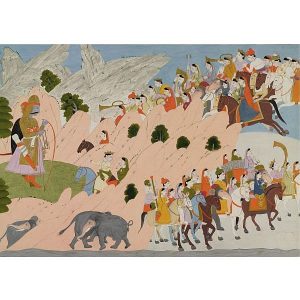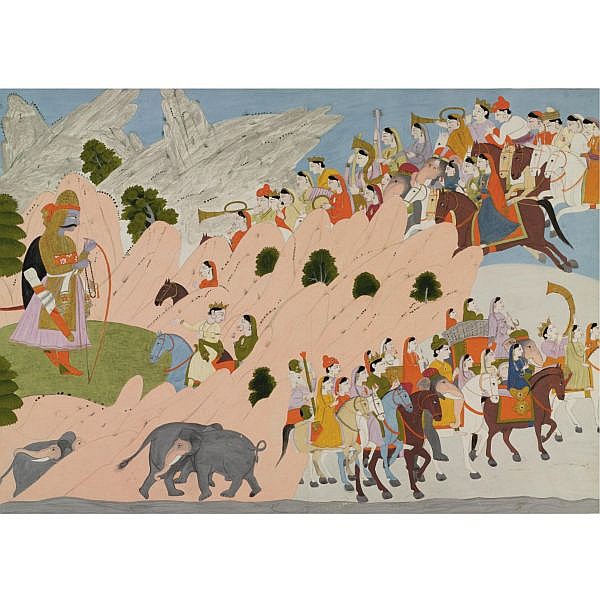
Image credit: Arjuna standing in a hilly landscape (from the epic Mahabharata) taken by Unknown under Public Domain.
In literature, something is considered a lost work when none of the original version of a literary text has survived. However, it also includes literary texts that were somehow lost, and a few portions of it were found. Some others don’t necessarily have the original version, but only the translated version or some of its words were quoted by another author in a different literary piece.
There are a lot of reasons why these literary works got lost. Some of them were deliberately destroyed by the author. They were either burnt by the authors themselves or they have requested someone in the family to burn what they have done if they die. There were also some manuscripts that were not published since the author died during the writing or has met an accident that not only took the life of the writer, but also his or her works. Some others were stolen along with other valuables or were deliberately stolen to claim that it was their work.
Analyzing the Bible as a Lost Work
One of the most common examples is the Holy Bible. Yes, this could be highly debatable. Before the Vatican Council considered certain books to be official books of the Bible, they have already been carefully analyzed and evaluated. The authors have to be “inspired” by the Holy Spirit during writing and its original documents must be intact as well. However, a lot of people would argue that some books in the Bible were not found intact. Some of the texts were just filled out based on the understanding of early believers. Some others say that even if the original versions of each book survived, everything got lost as the books were translated over the years. However, in general, since most of the Bible’s original scrolls have been kept in the Vatican archives, it is not necessarily a lost work.
Other Examples of Lost Work
• One of the earliest encyclopedias ever made was the Youngle Encyclopedia from China. It was created during the Ming Dynasty in 1403. Over the years, several chapters were lost and only 400 or less than 4% of the encyclopedia’s original copy survived.
• Joseph Smith translated the Book of Lehi from the Mormon Golden Plates. However, his translations are nowhere to be found as they were said to be hidden or destroyed by Lucy Harris, the wife of Smith’s transcribers. Smith did not exert any effort to translate the book again.
• The Hindu epic Mahabharata is definitely one of the longest literary works in the world with over 200,000 verses. As long as it may already seem, it is said to be incomplete. Its earliest versions were lost and have not been discovered.
• Euclid, one of mankind’s greatest philosophers, has lost a lot of works just like many other philosophers during his time. Some of his lost works were Conics and Porisms. Conics was later extended by Apollonius of Perga, with some words quoted and translated from the original text.
• Hyperides was a great orator. He has created hundreds of speeches. It was believed that his works were preserved in Buda in 1525. Sadly, the library was destroyed in 1526 by the Turks.
It is indeed sad to hear about lost works in literature. We could have learned a lot more from these authors had their worked survive. The good thing is that some people managed to find their works and some others made efforts to have them translated.












Sorry, the comment form is closed at this time.